By Alfred Solano
Hello Waco! While I am certainly not new to Waco, I do feel like I am re-introducing myself. As the new President/CEO of the Cen-Tex Hispanic Chamber of Commerce (CTHCC), I do feel like I am looking at my hometown through a new lens. And, while I am a long-time member of the CTHCC, even serving as board chair for a few years, I am looking at the Chamber through a new lens as well. I am trying to get a focus on how Waco sees us…how YOU see us.
I am also learning as much as I can, as fast as I can, about this fine organization so that I can share that information with you. I want to convince you to get involved with the work we are doing, either as a member, a partner or a supporter. With that in mind, here are five things I have learned, that I think everyone in Waco should know about the Cen-Tex Hispanic Chamber of Commerce.
- We are open to everyone. – The CTHCC was founded in 1975 and is a nonpartisan business membership organization open to the entire community. Our belief is that the Central Texas community will continue to benefit from the economic advancement of the Hispanic population the fastest growing market segment of Central Texas. Our membership roster includes individual supporters, some representing large National Businesses, with the majority of the members representing Small Businesses.
- We are a key source of information for the community. – The CTHCC hosts a Monthly Luncheon, Annual Banquet and many other events that are open to the Chamber members and non-members alike. At the luncheons local leaders from the public sector as well as local business women and men share their initiatives in a comfortable group setting. City, County, State, and Nationally elected officials are regularly represented at and actively participate in luncheon programs. The Annual Banquet regularly hosted at the Waco Convention Center brings together hundreds of people representing all areas of Central Texas and features local or nationally known public and private sector keynote speakers. ABC news correspondent John Quinones and Former San Antonio Mayor & HUD Secretary Henry Cisneros are examples of the caliber of speakers we have featured at our banquets.
- We are terrific partners. – The CTHCC partners with the Cities of Waco and Bellmead, LULAC (League of United Latin America Citizens), various local initiatives including City Center Waco, Start-Up Waco, and Prosper Waco. We are an active participant within the McLennan County Chamber Alliance (a ten Member Chamber alliance), numerous local foundations (Cooper, Waco, Rapoport and United Way), and TAMACC (Texas Association of Mexican American Chambers of Commerce) to name a few partners. The purpose of these partnerships is to enhance the economic prosperity of the Greater Waco area by collaborating with as many resources as is necessary.
- We help Wacoans find good jobs. – The CTHCC regularly hosts job fairs at our activity hall on LaSalle or at the Bellmead Civic Center. We work to host these fairs in conjunction with Workforce Solutions of the Heart of Texas, and Workforce Management Partners Group. As a Chamber of Commerce our overarching goal is to improve economic development in Central Texas and the focus on quality employment opportunities is the cornerstone of our efforts. We will continue working with educators in Waco ISD, McLennan Community College, TSTC and Baylor, Tarleton and Texas Tech to play a role in the advancement of our local students, so that they may realize their potential.
- We have space to rent. – As a community organization, we know that finding the space for meetings and events is sometimes an issue in Waco. The CTHCC offices at 915 LaSalle and the 2,400 – square foot activity hall is available for rent 7 days a week. The hall is used for monthly luncheons, business meetings, job fairs, Birthday parties, our Back-to-School bash, and our neighborhood Christmas party for families and many other events.
As a new member of the Staff it is my hope that by sharing a snapshot of the past and present efforts of our Chamber we may encourage others to join our efforts. Our team, both staff and our tremendous volunteer network, are ready to assist where our talents may enhance the community. The future of the CTHCC is bright because we have a solid foundation of membership, community partners and friends due in large part to the efforts of past leadership. Twenty-two days on the job and I couldn’t be more excited for the work, and humbled by the support. See you around town!
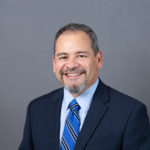 Alfred Solano is the new President/CEO of the Cen-Tex Hispanic Chamber of Commerce as of as of June 1, 2018. Alfred was raised in Waco and enjoys spending time downtown with his wife Rachel. After 35 years in the copier industry, he is looking forward to working with local community partners from the CTHCC perspective.
Alfred Solano is the new President/CEO of the Cen-Tex Hispanic Chamber of Commerce as of as of June 1, 2018. Alfred was raised in Waco and enjoys spending time downtown with his wife Rachel. After 35 years in the copier industry, he is looking forward to working with local community partners from the CTHCC perspective.
The Act Locally Waco blog publishes posts with a connection to these aspirations for Waco. If you are interested in writing for the Act Locally Waco Blog, please email [email protected] for more information.
By Tami Nutall Jefferson
Thirteen. Nineteen. Thirty. Those are the number of public posts that the Facebook post search function yielded for “Waco’s Juneteenth parade” for the years of 2016, 2017, and 2018, respectively. As Luann Jennings touched on the basics of placemaking in the first segment of this series, we are seeing firsthand the impact that organized and grassroots placemaking is having on the Elm Avenue district. Image is a big part of that. We are witnessing placemaking in action – live and in living color.
As with everything in life, there will always be two sides to the practice of placemaking. Whether you are on the “gung ho – let’s go” side or the “SOoMYB” (stay out of my backyard) side, I commend the City of Waco for proactively making a public forum available to the friends and neighbors of East Waco to voice their concerns and opinions about these projects as they move forward. The first of one of these forums took place on May 8th at the Multi-Purpose Center in East Waco at the Elm Ave Streetscape Project Public Meeting. The well-attended meeting included many familiar faces of Waco leadership, and importantly, many friends and neighbors who care about preserving while developing the East Waco neighborhood. Led by Community Liaison Chris McGowan of CMC Strategic, plans and action items were set forth for the impending upgrade of the Elm Avenue Corridor.
The City of Waco detailed their sidewalk and street improvement plans for the portion of Elm Avenue that runs from Martin Luther King Blvd. to Garrison Street. This stretch of improvements will launch the City’s physical efforts to extend downtown life into East Waco and connect both sides of the City with each other – bringing to life the 40-year ImagineWaco Plan. The initial plan is to improve the street crossings, create and enlarge sidewalks, enhance pedestrian, biker, and community safety, add accessible ramps where required, and ultimately add more vehicle lanes and on-street parking.
Feedback was also solicited to help design the cosmetic improvements of the project. These types of improvements are often make or break factors in the end acceptance and use of public spaces by us – the general public. Think of those times when developers laid beautifully, smooth stone surfacing – that slicks over when it rains. Or when developers build new street-fronting businesses with no or small windows in eye-burning colors. Or when city transportation officials removed bus sheds and street lamps on busy streets where the majority of neighbors utilize bus services – such as at the corner of Elm Avenue and East Church Street. To prevent these types of unwelcome or underutilized designs, the design and engineering teams presented participants with inspiration boards featuring several options of colors, street surfacing, and landscaping styles that they could vote on using their red (‘NO”) and green (“YES”) stickers. The project architect, RBDR Architects, would then take this feedback into account when laying out their landscape and architectural design and making material selections.
This initial $3.1 million dollar project, jointly funded by local TIF investment ($700,000) and grants from the State of Texas ($2.4 Million), is slated to begin in the winter of 2019 and finished by the spring of 2021. Even with the completion of this, though, we are only at the very beginning stages of the work and the conversations. Expect several more public information meetings to occur along the way and many more chances to contribute your voice to the shaping of East Waco.
This project is a great start. It’s exciting to imagine that the 2021 Juneteenth Parade and festivities might possibly be the most vibrant and well-attended parade of its kind across Texas, showcasing to the world just how well good design and community-centric placemaking efforts can bring life to main street cities and bridge gaps across cultures and communities.
 Tami Nutall Jefferson is an older, non-traditional student with a professional real estate background. Tami begins her first academic year at Texas A&M University pursuing a Bachelor’s Degree in Urban Planning and Land Development while commuting between Waco and College Station. Her hope that every Wacoan – from all corners – can engage in and contribute to the growth and success of the city. You can connect with Tami at [email protected] or on Facebook at https://www.facebook.com/tami.nutall1.
Tami Nutall Jefferson is an older, non-traditional student with a professional real estate background. Tami begins her first academic year at Texas A&M University pursuing a Bachelor’s Degree in Urban Planning and Land Development while commuting between Waco and College Station. Her hope that every Wacoan – from all corners – can engage in and contribute to the growth and success of the city. You can connect with Tami at [email protected] or on Facebook at https://www.facebook.com/tami.nutall1.
The Act Locally Waco blog publishes posts with a connection to these aspirations for Waco. If you are interested in writing for the Act Locally Waco Blog, please email [email protected] for more information.
By Rebecca McCumbers Flavin
While low voter turnout is a problem across the United States, Texas’ voter turnout rates are especially disappointing. According to statistics reported by the Texas Secretary of State, there are more than 15 million registered voters in the state of Texas, yet fewer than 3 million of these voters cast a ballot in the March 2018 Primary. The turnout was lousy for both major parties. In the Republican Party primary, just over ten percent of registered Texas Republicans voted, and approximately 7 percent of registered Texas Democrats voted. The Texas Secretary of State estimates that nearly twenty-four percent of the voting age population (VAP) in Texas is not registered to vote, which means that less than eight percent of Texas’ VAP voted in the March 2018 Primaries. With the local community’s help, the League of Women Voters of Waco hopes to improve these numbers for the general election this November.
In ALW blogs earlier this year we introduced our chapter, but in case you missed those, let us (re)introduce ourselves. The League of Women Voters (LWV) is a non-partisan organization that for nearly 100 years has advocated protecting the right to vote and encouraging the exercise of that vote. LWV pursues this mission by both lobbying elected officials and providing non-partisan voter education materials and programs for citizens. In Waco the LWV had an active local chapter for decades, and after a several year hiatus, the Waco chapter was reformed in 2017 as a League-at-Large under the auspices of the LWV-Texas. In the past year LWV-Waco has hosted several events, including a voter candidate forum for the March 2018 primary election and voter registration drives.
For our next event, we are excited to team up with Waco Walks on Saturday, July 14 for a walk that will be part educational and part social. We will be strolling the border of one of Waco’s most interestingly-shaped voter precinct boundary lines, the “dog leg” border that separates voting precinct 8 from precincts 4 and 7. This “dog leg” also forms part of the boundary between McLennan County Commissioner Precincts 1 and 2. We chose this area for the walk not only based its shape, but also for its general walkability in terms of distance, sidewalk availability, and access to shade. On our walk, which will take us through downtown Waco along Austin and Franklin Avenues, we’ll chat about a number of topics, including the history of redistricting in the United States, how the redistricting process works in anticipation of the redistricting that will occur in the states after the 2020 U.S. Census, and how invisible political boundaries have tangible effects on our everyday lives.
Now, you may be asking yourself, “what does walking a voting precinct boundary line in the middle of the scorching hot Texas summer have to do with increasing voter turnout?” Great question. We would submit there are at least three connections.
The first connection is related to voter education, generally. According to a 2016 survey by the Pew Research Center, non-voters reported being less knowledgeable about politics than “consistent voters” (those who vote in both presidential and mid-term elections) and “drop-off voters” (those who vote in presidential elections but who tend to miss mid-term elections). Similarly, the survey found gaps in political knowledge between drop-off and consistent voters. In this and numerous other studies, there is a positive correlation between the level of political knowledge and voter turnout rates.
The second connection is related to learning about redistricting, specifically. In the U.S. there is a long history of legislators drawing district lines in an effort to protect their own political interests. When districts are gerrymandered to diminish the influence of an opposing political party or community of interest, by “cracking” (dividing voters in the opposing party across different districts to dilute their impact) or “packing” (concentrating voters in opposing party into a few districts so that they win there by overwhelming margins), this can have a negative impact on electoral competitiveness. Political scientists have found that voter turnout tends to be higher in areas where elections are more competitive. Moreover, increasingly sophisticated mapping software makes it easier for elected officials to effectively choose their voters during the redistricting process.
The final connection between walking and talking about voting is that while the act of casting a ballot takes place in the privacy of the voting booth, voter mobilization to increase turnout is necessarily social. If voters encourage nonvoters, for example, this could help foster a culture of voting in McLennan County. Whether you have never missed an election or never voted in an election, we hope you will come share your story with your neighbors during the walk.
So join us on Saturday, July 14 for Waco Walks! We will meet at the Waco-McLennan County Central Library at 1717 Austin Avenue at 8:00 AM. The walk will be less than two miles. Bring a bottle of water and sunblock. Dogs are welcome, but please be prepared to clean up after your pet. Our only ground rule for the walk is that in keeping with the LWV’s strict non-partisan stance, we ask you to leave political party or campaign materials at home. LWV does not support any political parties or candidates for office.
 Rebecca McCumbers Flavin serves as Co-Communicator for LWV-Waco, leading the taskforce that focuses on voter registration and get out the vote activities. Dr. Flavin is also a Senior Lecturer in Political Science at Baylor University. To join or learn more about LWV, follow us on Facebook by searching for League of Women Voters of Waco, or contact the local chapter at [email protected].
Rebecca McCumbers Flavin serves as Co-Communicator for LWV-Waco, leading the taskforce that focuses on voter registration and get out the vote activities. Dr. Flavin is also a Senior Lecturer in Political Science at Baylor University. To join or learn more about LWV, follow us on Facebook by searching for League of Women Voters of Waco, or contact the local chapter at [email protected].
By Glenn Robinson
When it comes to technology that makes our lives better, the trend has been smaller, faster, and better. When it comes to next generation medical procedures being rolled out nationwide, that trend has largely been mirrored.
Procedures that once took hours, now may take only minutes. Procedures that once involved long, unsightly incisions, are now being conducted with tiny tools that may only require an incision the size of a razor nick.
Perhaps nowhere have these advancements been more pronounced than in heart care and orthopedic medicine. Take, for example, procedures to repair or replace damaged valves in the heart. Ten years ago, these procedures often involved major invasive surgery, a week or more in the hospital, and months of recovery.
Today, many of the nation’s leading heart programs – including right here in Texas – offer solutions for certain valve problems that are so minimally invasive, qualified patients can leave the hospital in as little as one day and be fully recovered within a matter of weeks.
Similarly, major orthopedic procedures, particularly in the field of joint replacement, have come a long way since the turn of the century. Advances in pre-procedure imaging, artificial devices, and operational technique have led to artificial hips and knees that feel as good as the original with a fraction of the recovery time.
These and many other innovative procedures are creating better outcomes and giving more patients the opportunity to improve their quality of life. But how do scientific studies performed in labs turn into these actual medical treatments?
Translational medicine transforms basic scientific discoveries into innovative therapies for patients. This kind of research, often referred to as “bench to bedside,” seeks to implement evidence-based medicine safely, effectively, and as quickly as possible.
One of the most challenging aspects of translational medicine is gaining widespread adoption of new, evidence-based medical practices. It takes the complete commitment of an organization’s top management to recognize and reinforce the importance of this kind of research and its comprehensive, consistent application.
Many leading health care organizations are represented through research institutes, which facilitate translational medicine. These institutions focus on basic science, clinical trials, and healthcare quality-of-care research. They seek to understand the basis of a disease, identify potential treatments or preventive therapies, and enroll patients in research trials.
The institutes’ objectives are not only to make new scientific discoveries, but to implement research successes into community-based healthcare practices and then promote proven prevention and treatment strategies throughout the entire organization and greater healthcare community.
These institutes have been responsible for creating several novel therapies right here in Texas and have attracted millions in grants from U.S. and international government agencies to support important research efforts – turning laboratory research into new standards of care for the entire industry.
Another new trend in the world of research is the use of artificial intelligence, or A-I. A-I can solve complex problems that exceed human capabilities. Through its ability to access vast troves of data, A-I algorithms can both exceed the knowledge of experts, and augment the abilities of non-experts.
A-I already is disrupting transportation, marketing, and financial services, among other sectors of the economy. In healthcare, this technology is gaining momentum and has the potential to significantly alter the industry not only by developing new treatment options, but also by streamlining back office operations.
As care providers look to better engage patients and improve efficiency, many are turning to artificial intelligence to help them succeed. A-I powered medical assistants can book appointments, remind patients to take their pills, monitor a patient’s health status, and perform other time-intensive tasks.
A survey of health consumers found 55 percent are willing to engage with A-I and robots for healthcare needs. At a recent South by Southwest conference, Mark Rolston of Argo Design said artificial intelligence and virtual reality will be important parts of healthcare’s future.
Likewise, Oscar Salazar, of the app Pager, said that A-I gives nurses “superpowers.” He predicts that A-I increasingly will take over decision-making for healthcare triage and diagnosis, dramatically changing the roles of healthcare professionals.
Don’t expect your doctor to be going away anytime soon though. Like many technologies, A-I works best when paired with smart, capable people.
This report, and other episodes, are available at KWBU.org.
 Glenn Robinson is the President of Baylor Scott & White Medical Center – Hillcrest. He has over 30-years of experience in hospital and health care management, and currently serves on several Boards associated with the Texas Hospital Association and the American Hospital Association. In addition, Glenn is Past-Chair and an active member of the Greater Waco Chamber of Commerce, and serves on the Prosper Waco Board.
Glenn Robinson is the President of Baylor Scott & White Medical Center – Hillcrest. He has over 30-years of experience in hospital and health care management, and currently serves on several Boards associated with the Texas Hospital Association and the American Hospital Association. In addition, Glenn is Past-Chair and an active member of the Greater Waco Chamber of Commerce, and serves on the Prosper Waco Board.
(This post is a part of a regular series “Trails & Trials,” a monthly adventure series inspiring others to experience the physical, mental, and social benefits of cycling, running or swimming in Central Texas. For more posts in this series, click here: Trails and Trials. – ALW)
By Brandi Grissom Swicegood
No matter how fit you are, how hard you trained or how mentally prepared you think you are, some race days just don’t come together the way you imagined. How do you keep it together mentally and stay positive enough to push to the finish, when your goals fade from reality?
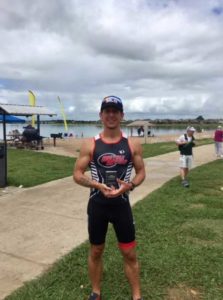 Justin Siegel, an athlete coached by Natasha van der Merwe, Director of Team Programs for Bicycle World, Texas, had an outstanding race in Pflugerville, but just a week earlier at Ironman Boulder, the day unfolded much differently than he expected. It was his third full Ironman race, and he was hoping for a personal best time. It didn’t happen.
Justin Siegel, an athlete coached by Natasha van der Merwe, Director of Team Programs for Bicycle World, Texas, had an outstanding race in Pflugerville, but just a week earlier at Ironman Boulder, the day unfolded much differently than he expected. It was his third full Ironman race, and he was hoping for a personal best time. It didn’t happen.
Despite the challenges of a brutally hot day, Justin said the race was his best Ironman yet. How could that be?
Justin learned the most valuable racing lesson: It’s not about the numbers on the clock; it’s about the gratitude in your heart.
Q: Why’d you choose to race Ironman Boulder?
A: Boulder’s amazing scenery, coupled with the altitude and hills, put it on my short list from the beginning. The decision to race it this year was pretty last minute. I signed up a week before the race. Originally, I had planned to support my friend who was racing. But after a disappointing race at Ironman Texas a few weeks earlier, I was eager to take a second crack at it.
Q: What was your training like for Boulder and how was it different from your previous races?
A: Since I was coming right off a big build for Ironman Texas, I tried to focus on a few of the things that I felt were missing in my preparation for Ironman Texas. First, I forgot that racing and training are two different things, so I raced a few sprints. Second, since it was so cool this spring I did a lot more of my training outdoors to acclimate to the heat. Third, I worked on my nutrition plan.
Q: What were your goals going into Boulder?
A: My No. 1 goal was to race with gratitude and enjoy the experience. My second goal was to finish. My third was to set a personal record. My fourth was to nail my nutrition, in particular on the run. I got three out of the four.
Q: At what point did you realize the day wasn’t going to go according to your plan?
A: The day was absurdly hot. It hit 90 before 11 a.m., so I knew from the start it was going to be brutal. During the second loop of the bike, I saw people walking their bikes, which is something I’d never seen before. Others were passed out on the side of the road. At that point, I told myself I was going to make whatever adjustments I had to make to finish. My bike time was a bit slower than I’d hoped, but I was OK with it considering the heat, headwinds, altitude and hills. Five or six miles into the run, I managed to start hitting a pace that would set me up for a PR. But around mile eight or nine, I realized it wasn’t going to cool off anytime soon. I walked for a bit with a pro who was too wiped out to run. At that point, I realized I was not going to PR. In fact, I realized I probably wouldn’t finish if I forced myself to run much more. It was time to focus on finishing and enjoying the opportunity to be out there racing in such epic conditions.
Q: How did you deal with that realization mentally?
A: For a relatively brief moment, I was really disappointed that I wasn’t going to hit all my goals. While it was easy to point to the conditions, the reality is that some people had fantastic races that day. That wasn’t going to be me if I defined a great race by time. I bounced back because in my heart I knew that I’d given my all, executed my race plan, and I remembered that my top two goals were to be grateful and to finish. Those things are what I focused on until the end. I thanked every volunteer at every aid station. I soaked up the amazing scenery. I helped a struggling athlete finish. My friend’s daughter joined me for a few of the final miles. And I crushed the final 1/2 mile into the finisher chute!
Q: What did you tell yourself to keep going when the going got rough?
A: Positive self-talk is probably the skill I need the most work on deep into a race. I reminded myself that I can handle the pain, and that the pain will ebb and flow, so I just needed to persevere.
Q: What was the best part of the race for you?
A: As we lined up for the swim, with an amazing sunrise to the east and snow-capped mountains to the west, I realized how cool it was that I was about to do my second Ironman in six weeks, and by far my most challenging. I knew without a doubt that I had the depth of fitness and training to do it. I felt unstoppable.
Q: What did you learn about yourself during the race?
A: That I have to enjoy the experience. Racing can’t always be about the time or the result.

Brandi Grissom Swicegood spent nearly 20 years in the news business and quit to chase her dream of being a professional triathlete. Her work has been published in Dallas Morning News, The New York Times, the Los Angeles Times and Texas Monthly, among others. She is chronicling her journey as triathlete in a column at dallasnews.com and on her blog at https://www.brandiswicegood.com/. Email her at [email protected] and find her on Instagram at @brandiswicegood.
The Act Locally Waco blog publishes posts with a connection to these aspirations for Waco. If you are interested in writing for the Act Locally Waco Blog, please email [email protected] for more information.
(Editor’s note: This post was originally published in Karat Magazine. To quote their website, “The Karat is a Waco-based online magazine celebrating local people & history. Each person has a story, and every story is gold.” To read more about the founders of Karat Magazine and their vision, click here. For this story and others like it, click here: Karat Magazine. – ALW)
By Evan Hebert
I have spent my whole life in Waco. The first 18 years I lived in Hewitt, avoiding downtown Waco like the plague. Then, on a whim and despite having no familial or emotional connections to the university, I decided I would apply to Baylor. As most people do, I immediately fell in love with the campus, the people, and the idea of feeling like I wasn’t in Waco.
Because Baylor is the most expensive school in the entire world (maybe a slight exaggeration), I was forced into a very unconventional freshman year. Originally, I planned to live at home with my mom to save money, but I ended up couchsurfing my entire first year of college. From crashing on an air mattress with a very cute dog named Oliver for two months, to becoming a “futon guy” for the spring semester, I was exposed to more life in those nine months than I had collectively experienced in the rest of my life.
Without a doubt, living off campus was tough. I made very few friends my freshman year at Baylor, but I got to truly experience my city for the first time. Rather than going to class or studying (sorry Mom), I spent my time running around a (then) vacant downtown, tugging on doors, and finding my way onto nearly every rooftop in the downtown area.
When I moved into the Waco High Lofts in February of 2013, I had only ever intentionally spent time in the downtown Waco area for the annual 4th of July fireworks show. Then, all of a sudden this vacant space was my new home. I spent my days trying to tread water in school and my nights falling in love with my city. Then, I spent the rest of my undergrad years sharing my favorite spots with any and everyone who would let me. I think the final count is around 300 students that I was able to introduce to my city via rooftops, abandoned buildings, and hole-in-the-wall spots. I was fortunate enough to work with 4 consecutive incoming classes of students, so I have had the honor of seeing the narrative about Waco change over the last 4 years.
Waco has historically been the butt of jokes (and with good reason most of the time), but there has been something special going on here for the last five years. I have had a distinct honor of growing and maturing (a little) alongside my hometown in the last half-decade. I have seen shops open (and close), a boom of civic pride hit the downtown area, and the least anticipated tourism explosion in the history of Waco. I have seen young people put their foot in the ground and commit to making this place better. I have seen my peers decide to move back home to see what the hype is about. I have seen the tension between “old Waco” and “new Waco” reach a boiling point. There has truly never been a more interesting or exciting time to call Waco home.
With the unprecedented growth Waco has seen recently have come some hard realities. You can no longer park 30 feet away from the front door of your favorite restaurant at any given time. You can no longer get literally anywhere in less than 10 minutes. You may have to wait 20 minutes to grab a seat at your breakfast spot. You may even have to honk your horn at a Magnolia mom or two coming at you the wrong way down 5th Street.
Growth is never easy. People don’t like change, and they especially don’t like change that they may not personally benefit from. Waco is a hot bed for change right now. My hometown, the place I fell in love with for its simple beauty, has transformed into the number two tourist destination in America. The abandoned buildings and rooftops that I used to sneak into and onto are now clothing stores, coffee shops, and downtown gyms. The secret places I used to enjoy as vantage points of my city are now Instagram hotspots. For a while, that change was a little too much, too fast for me. I felt like I had a secret that had gotten leaked. (I was also 19 and had a ton of maturing to do, which probably explains a lot.)
I graduated from Baylor about 18 months ago, and I have the best job in the world. I get to share my city with college students, connect them to cool things going on in town, and ultimately connect them to job opportunities with the hope of keeping them in Waco whenever they graduate. I get to spend time on each of the five college campuses in Waco, hear the stories of students trying to figure out their next step, and tangibly help them get closer to their goal. I am literally paid to brag about my city and help people fall in love with it. Life is crazy.
 I love my city. I have grown up alongside my city. I have my city on my arm (literally). Waco is a special place. You will have a hard time finding a place that makes you feel the way this place does. Waco has a rough history and has had to reconcile with some of the horrible things that have happened here. Because of stories like that of Jessie Washington, Waco has scars. Because of the tornado of 1953, Waco has scars. Because of the racial disparity highlighted by the contrasting experiences of Wacoans on either side of the river, Waco has scars. Through all of this, Waco has persisted, and will continue to grow closer to being a place for all people, and I can’t wait play my part in that story.
I love my city. I have grown up alongside my city. I have my city on my arm (literally). Waco is a special place. You will have a hard time finding a place that makes you feel the way this place does. Waco has a rough history and has had to reconcile with some of the horrible things that have happened here. Because of stories like that of Jessie Washington, Waco has scars. Because of the tornado of 1953, Waco has scars. Because of the racial disparity highlighted by the contrasting experiences of Wacoans on either side of the river, Waco has scars. Through all of this, Waco has persisted, and will continue to grow closer to being a place for all people, and I can’t wait play my part in that story.
 Evan Hebert is a native Wacoan and graduate of Baylor University with a degree in Corporate Communication. He is passionate about the Downtown Waco area and helping people get connected to their city.
Evan Hebert is a native Wacoan and graduate of Baylor University with a degree in Corporate Communication. He is passionate about the Downtown Waco area and helping people get connected to their city.
(Most Texans probably know the history of Juneteenth, but just in case there are a few folks out there who don’t know how this holiday started… On January 1, 1863, President Abraham Lincoln signed the Emancipation Proclamation ending slavery in the United States, but that message did not reach Texas until more than two years later…on June 19, 1865. That day became known as “Freedom Day” or “Emancipation Day” – but most people call it “Juneteenth.” It is an official state holiday in Texas. Waco celebrated Juneteenth last weekend (June 15, 16, 17) with numerous activities including the first ever Mr. and Miss Juneteenth Scholarship Pageant. Ashley Royal chaired the pageant and played an important role in helping to organize and implement many of the other events. This is her reflection on the weekend. Thanks for writing, Ashley! – ALW)
By Ashley Royal
Juneteenth is a Holiday that is not talked about much. Many people have no clue what Juneteenth is. Generations that have come along after mine don’t know of the significance of the day, or what we are celebrating; they just know it’s time for the parade and celebration. That really bothered me. I found myself wanting to educate the youth more on the history of Juneteenth, and so I made it my mission.
I wanted the 2018 Juneteenth Weekend to be the biggest celebration Waco has ever seen. This desire birthed the vision of a three-day Juneteenth Celebration that would educate, uplift, empower and unify the community of Waco.
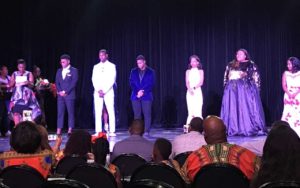 Friday night, June 15th was a monumental night for me. I had the privilege of chairing the Inaugural Mr. & Miss Juneteenth Scholarship Pageant hosted by FootPrintz Dance Company and sponsored by Creative Waco, Phi Beta Sigma Fraternity, Inc., The Waco Hippodrome, and Empowerment Driven by Knowledge Coalition (EDKC). We began work on this event three months ago, and at the pageant we celebrated six phenomenal McLennan County High School Students:
Friday night, June 15th was a monumental night for me. I had the privilege of chairing the Inaugural Mr. & Miss Juneteenth Scholarship Pageant hosted by FootPrintz Dance Company and sponsored by Creative Waco, Phi Beta Sigma Fraternity, Inc., The Waco Hippodrome, and Empowerment Driven by Knowledge Coalition (EDKC). We began work on this event three months ago, and at the pageant we celebrated six phenomenal McLennan County High School Students:
- Isaiah Montgomery, Junior from Robinson High School
- Naomi McCullough, Junior from University High School
- Darrell Sauls, Jr. 2018 Graduate of University High School
- Sha’Queveon Ward, 2018 Graduate of University High School
- Cameron Henry, Graduate of LaVega High School,
- and Rachel McCullough, Graduate of University High School.
These six amazing young men and women showed off their talents, knowledge of Waco African-American history, and their style as they modeled casual wear and formal wear. We even had a special guest, Dr. Linda Livingston from Baylor University, come and deliver a powerful message to the youth about the importance of higher education.
 I was so proud Friday night! It was an honor to be among some of the finest people in Waco. And, it was such an honor and privilege to be able plant a seed into six young people and three months later see them bloom. The winners received $1,000.00 each, 1st runners up $650.00 each, and 2nd runners up $350.00 each! Everyone was a winner Friday night and it was an amazing site to see. Not only did they get scholarship money, but throughout the planning for the pageant they participated in training courses about topics such as Financial Aid, interviewing, and professional dress. I really wanted to give them tools they could use in the real world. I am proud to say that with the help of many community partners we were able to do just that. That was the biggest event of my life!
I was so proud Friday night! It was an honor to be among some of the finest people in Waco. And, it was such an honor and privilege to be able plant a seed into six young people and three months later see them bloom. The winners received $1,000.00 each, 1st runners up $650.00 each, and 2nd runners up $350.00 each! Everyone was a winner Friday night and it was an amazing site to see. Not only did they get scholarship money, but throughout the planning for the pageant they participated in training courses about topics such as Financial Aid, interviewing, and professional dress. I really wanted to give them tools they could use in the real world. I am proud to say that with the help of many community partners we were able to do just that. That was the biggest event of my life!
Saturday we unified! We started off with with the Amazing Cen-Tex African American Chamber of Commerce Juneteenth Parade marching down Historic Elm Avenue. It was probably one of the biggest Waco Juneteenth parades I have ever seen. The Juneteenth Parade is always a blast, and I think the fact that we gather and march as one in unity celebrating the broken chains speaks volumes.
We continued our celebration in Brazos Park East at the Juneteenth Family Fun Day Celebration sponsored by EDKC, 94.5 The Beat, Allen Samuels and a host of other local sponsors. We had the reading of the Proclamation, tons of live entertainment, the Mega Kids Zone, all sorts of vendors, food, clothes, jewelry… you name it we had it! The big headliner Dru Hill put on a remarkable concert which closed out our Saturday.
Sunday was the finale! The Father’s Day Gospel Blowout Sponsored by Creative Waco and EDKC. We lifted the name of the Lord in song and dance at the Second Missionary Baptist Church of Waco. In attendance we had the Waco Community Choir, the Silent Saints of SMBC, Kupira Marimba, the Levites and more… and that was just the warm up! Headliner Myron Butler took the stage and completely put Juneteenth weekend over the top! It was the perfect ending to a phenomenal weekend.
I have always been proud of my culture and how far we as a people have come, but this Juneteenth Weekend I was proud of Waco! I felt the support of the community this entire journey and it was such a great feeling. This Juneteenth weekend I not only celebrated freedom, but I got to walk in purpose, leave my footprint, and make change. I even got to kick off an annual event, the pageant, that will start every Juneteenth weekend in Waco moving forward. The 2018 Juneteenth weekend was a success in my eyes. We accomplished so much in those three days which I hope will set a path for us to continue moving forward in the future.
This weekend we displayed excellence and proof that because of them… we can.
 Ashley Royal is the owner and director of FootPrintz Dance Company. She is a servant of the community of Waco. Ashley’s mission is to promote high self-esteem, build character and help develop leadership skills in young people through the art of dance and community service. Ashley serves on the Board of Directors for The Youth Connection of Waco, she is a volunteer at Mission Waco, teaching the Hip Hop Dance Class and is also volunteers as a Pee Wee cheer coach for the Waco United League. Ashley works full time for the Daniel Stark Law Firm as a Pre- Litigation case manager. Through the service in the community Ashley hopes to build relationships that will lead to a stronger and better developed East Waco.
Ashley Royal is the owner and director of FootPrintz Dance Company. She is a servant of the community of Waco. Ashley’s mission is to promote high self-esteem, build character and help develop leadership skills in young people through the art of dance and community service. Ashley serves on the Board of Directors for The Youth Connection of Waco, she is a volunteer at Mission Waco, teaching the Hip Hop Dance Class and is also volunteers as a Pee Wee cheer coach for the Waco United League. Ashley works full time for the Daniel Stark Law Firm as a Pre- Litigation case manager. Through the service in the community Ashley hopes to build relationships that will lead to a stronger and better developed East Waco.
By Katie Schaeffer
 On Aug 22nd 2017, Mission Waco celebrated the grand opening of Urban REAP (Renewable Energy Agriculture project). It was the culmination of a dream to create a place that would grow food for the North Waco neighborhood in a sustainable way, which emphasizes and teaches “creation care”. Urban REAP has an aquaponics greenhouse, run by the energy collected from 36 solar panels, and filled with water from a 3,000 gallon rain water collection tank. It also has an industrial composter, demonstration beds and garden plant sales area. The project was funded by a large grant from Green Mountain Energy’s Sun club, as well as the Seth Dorrell Memorial Fund and private donations. Since the Grand Opening, we have been busy growing produce, collecting food waste, growing plants from seed, giving tours to schools, businesses and individuals, building relationships with our neighbors, and learning so much about how to run each of the many components that compose Urban REAP. It’s been an exciting and exhausting year. As with any new venture, we have had successes and set-backs. Below are some of the highlights of the last year for each component.
On Aug 22nd 2017, Mission Waco celebrated the grand opening of Urban REAP (Renewable Energy Agriculture project). It was the culmination of a dream to create a place that would grow food for the North Waco neighborhood in a sustainable way, which emphasizes and teaches “creation care”. Urban REAP has an aquaponics greenhouse, run by the energy collected from 36 solar panels, and filled with water from a 3,000 gallon rain water collection tank. It also has an industrial composter, demonstration beds and garden plant sales area. The project was funded by a large grant from Green Mountain Energy’s Sun club, as well as the Seth Dorrell Memorial Fund and private donations. Since the Grand Opening, we have been busy growing produce, collecting food waste, growing plants from seed, giving tours to schools, businesses and individuals, building relationships with our neighbors, and learning so much about how to run each of the many components that compose Urban REAP. It’s been an exciting and exhausting year. As with any new venture, we have had successes and set-backs. Below are some of the highlights of the last year for each component.
Our aquaponics system has done very well growing produce this year. It can grow between 1,400-1,500 plants at a time on floating trays in nutrient rich water which is derived from fish waste that circulates throughout our system. We used around 300 Hybrid Striped Bass in our system this year. The system is able to grow a large variety of plants, but we chose to focus on Kale, Swiss Chard, Basil, Collard and Mustard Greens, Parsley, Cilantro, lettuce and tomatoes. 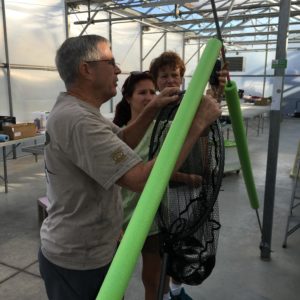 We primarily sell our produce next door at the Jubilee Food Market, and across the street at both Mission Waco’s World Cup Café and D’s Mediterranean Grill. One of the coolest parts of having an urban farm right next to a grocery store and 2 restaurants is that we don’t have to pack up our produce and drive it somewhere. We just harvest it and minutes later, walk it over. It doesn’t get much fresher than that, and our carbon footprint is zero!! This year we are hoping to add a few more local restaurants as regular customers to help sustain what we do. It will probably require using a vehicle, but hopefully for only 5 minutes! Our aquaponics system not only provides produce, but also up to 500lbs of fish and 720lbs of crawfish annually. Unfortunately, one of our big setbacks this year was that we lost our fish during a power outage in December. So we have not been able to harvest any fish out of the system yet, and have had to delay the adding of the crawfish. We got a back up generator in January, and were able to replace the fish. The Crawfish should be added by early October. Looking forward to our first fish and crawfish harvest in our second year of operation!!
We primarily sell our produce next door at the Jubilee Food Market, and across the street at both Mission Waco’s World Cup Café and D’s Mediterranean Grill. One of the coolest parts of having an urban farm right next to a grocery store and 2 restaurants is that we don’t have to pack up our produce and drive it somewhere. We just harvest it and minutes later, walk it over. It doesn’t get much fresher than that, and our carbon footprint is zero!! This year we are hoping to add a few more local restaurants as regular customers to help sustain what we do. It will probably require using a vehicle, but hopefully for only 5 minutes! Our aquaponics system not only provides produce, but also up to 500lbs of fish and 720lbs of crawfish annually. Unfortunately, one of our big setbacks this year was that we lost our fish during a power outage in December. So we have not been able to harvest any fish out of the system yet, and have had to delay the adding of the crawfish. We got a back up generator in January, and were able to replace the fish. The Crawfish should be added by early October. Looking forward to our first fish and crawfish harvest in our second year of operation!!
Another component at Urban Reap is our industrial composter, which is designed for facilities that throw away a lot of food, such as grocery stores, restaurants, cafeterias, hotels, etc. The composter can take 150-180lbs of food waste a day, and in 24 hours, turn it into highly concentrated fertilizer compost for growing plants. This past year, we easily met that amount of food waste daily, by collecting from World Cup Café, Jubilee Market and the neighborhood’s Blue Bucket Brigade. The Blue Bucket Brigade (BBB) was an idea that Mission Waco founder and Urban REAP creator, Jimmy Dorrell, had as a way for neighbors to participate in our food waste collection. Anyone can be in the BBB, by picking up a 5 gallon blue bucket and lid at REAP to keep at home for collecting kitchen scraps. When it’s full or been under the sink too long, bring it back to our waste drop off area, rinse the bucket in our rinse area, and start all over. We provide helpful guideline handouts and bags of sawdust to keep the smell down. It’s been cool to see the community join in the composting efforts with such faithfulness and commitment. We have made many friends with members of the BBB who regularly drop off their waste. The highly concentrated compost/fertilizer is sold at REAP in 20lb bags, 1 gallon bags and even compost tea bags. Looking forward to another year of turning trash into treasure!
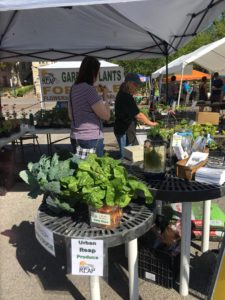 Another thing we do at Urban Reap is grow garden plants to sell to the Waco community. Most all our plants are grown from seed and sold in our sales area behind Jubilee Market. We grow many varieties of flowers, as well as unique heirloom varieties of fruits, vegetables and herbs. Our sales plants are also growing in our demonstration beds so that customers can see what the size, shape and color the plants they are considering would look like fully grown. We have had the privilege and pleasure of helping many from the neighborhood with plants and advice for their gardens. In April, we joined the Waco Downtown Farmers Market, where we not only sold our garden plants, but our produce, compost, T-shirts and creative ventures. Our biggest hit at the farmers was our mini-aquaponics kits, which includes a coupon for an aquaponics plant from our system and a beta fish from the North Waco Fish store next door. Volunteer, Judy Butts, gets the credit for coming up with that fantastic idea, along with most of the cool creative products sold. We have so enjoyed helping people make their homes, yards and lives beautiful and bountiful. We taking a break from the Farmer’s Market during the summer months and hope to be back in the fall.
Another thing we do at Urban Reap is grow garden plants to sell to the Waco community. Most all our plants are grown from seed and sold in our sales area behind Jubilee Market. We grow many varieties of flowers, as well as unique heirloom varieties of fruits, vegetables and herbs. Our sales plants are also growing in our demonstration beds so that customers can see what the size, shape and color the plants they are considering would look like fully grown. We have had the privilege and pleasure of helping many from the neighborhood with plants and advice for their gardens. In April, we joined the Waco Downtown Farmers Market, where we not only sold our garden plants, but our produce, compost, T-shirts and creative ventures. Our biggest hit at the farmers was our mini-aquaponics kits, which includes a coupon for an aquaponics plant from our system and a beta fish from the North Waco Fish store next door. Volunteer, Judy Butts, gets the credit for coming up with that fantastic idea, along with most of the cool creative products sold. We have so enjoyed helping people make their homes, yards and lives beautiful and bountiful. We taking a break from the Farmer’s Market during the summer months and hope to be back in the fall.
Urban REAP’s first year is almost in the books, and all the above couldn’t have happened without the amazingly generous Waco community, Mission Waco Staff and the many, many, wonderful, faithful volunteers who have given their time and talents to make it so special. Two volunteers who went above and beyond in more ways than there is space to write are Tony Allen and Shelley Meyers who were at REAP from the beginning, and volunteered 6 days a week, at least 4-5 hours a day. They became the aquaponics managers and even received “Volunteer of the Year” awards at Mission Waco’s Annual Banquet. We also had two wonderful work-studies during the school year, Fischer Heibel and Courtney Doucet, who we couldn’t do without, working 2 hours a day, 6 days a week. Lastly, our first intern, the delightful Lili Zertuche, has joined us this summer. She is going into her junior year at Cornell as a sustainable agriculture major.
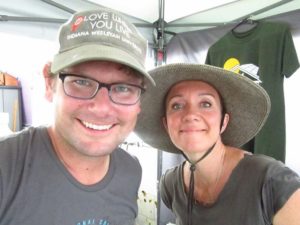
Daniel Hiatt and Katie Schaeffer
As we look forward to our second year, we are hoping to add classes for the community, lead by master Gardeners and experts on at-home composting, rain water catchment, aquaponics, gardening projects and more. There are also hopes to eventually have a curriculum on creation care and gardening for youth. I am so grateful for the privilege of being a part of this beautiful project and the Mission Waco community. My time as the director is quickly coming to an end on June 30th. My husband and I are moving on to another ministry we feel called to in Austin at the end of the summer. We are very sad to say goodbye to the many dear people in Waco who have become sweet friends and like family to us. So many have left impressions on us that will last a lifetime. I am so happy to know that Urban REAP will be in the capable hands of its new director, Daniel Hiatt, starting on July 1st. Daniel lives close by in the neighborhood with his wife and kids, where he has a large parcel of property that he has aspirations of developing an urban farm on. He is a Truett Seminary graduate, and had Jimmy Dorrell as a professor of a class on Community Development. He is a deacon at Calvary Church only a few blocks away, and has been involved in exploring avenues to revive and develop the community garden across the street from the church. He has also been involved with, and a board member for the Heart of Texas Urban Garden Coalition. His passions and direction in life align with those of the Urban Reap Director position, and we are so grateful that God brought him at just the right time. Looking forward to what the Lord has in store for REAP in it’s 2nd year with Daniel at the helm.
If you haven’t already, come check us out! Urban REAP is open to the public Monday-Friday 9am to 4pm, Saturdays 9am to 2pm, and closed on Sundays. Our address is 1505 N. 15th street, Waco, TX, 76707. If you would like to volunteer or set up a tour, we can be reached by email at [email protected].
 Katie Schaeffer and her husband Rick consider it a real privilege to be managing Mission Waco’s amazing Renewable Energy Agricultural Project (REAP). Katie and Rick came to Waco at the end of 2015, from CA. Katie is happiest being in nature and tending to plants, and eating good food with friends and family. She and her husband Rick are also grateful for the privilege and deep joy of raising two sets of twin boys, who are now amazing 23 & 24 year old men.
Katie Schaeffer and her husband Rick consider it a real privilege to be managing Mission Waco’s amazing Renewable Energy Agricultural Project (REAP). Katie and Rick came to Waco at the end of 2015, from CA. Katie is happiest being in nature and tending to plants, and eating good food with friends and family. She and her husband Rick are also grateful for the privilege and deep joy of raising two sets of twin boys, who are now amazing 23 & 24 year old men.
The Act Locally Waco blog publishes posts with a connection to these aspirations for Waco. If you are interested in writing for the Act Locally Waco Blog, please email [email protected] for more information.
By Christine Holecek and Scott McClanahan
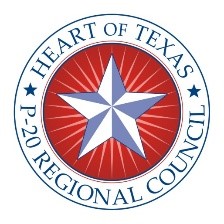 Preparing local students for a successful journey through school and college to careers is critical to the well-being and growth of our community. The Heart Of Texas P-20 works to promote streamlined, transparent degree pathways for students to move quickly and successfully through their education and onto college and/or a career. The Heart of Texas (HOT) P-20 brings together representatives from the independent school districts (ISD), institutions of higher education (IHE), Region 12 Education Service Center, industry and government across six counties: Bosque, Hill, Falls, Limestone, Freestone and McLennan to work towards this goal.
Preparing local students for a successful journey through school and college to careers is critical to the well-being and growth of our community. The Heart Of Texas P-20 works to promote streamlined, transparent degree pathways for students to move quickly and successfully through their education and onto college and/or a career. The Heart of Texas (HOT) P-20 brings together representatives from the independent school districts (ISD), institutions of higher education (IHE), Region 12 Education Service Center, industry and government across six counties: Bosque, Hill, Falls, Limestone, Freestone and McLennan to work towards this goal.
According to The Texas Higher Education Coordinating Board website:
“By 2030, 60 percent or more of all new jobs will require some level of higher education. Today, only 42 percent of young Texans between the ages of 25 and 34 have an associate degree or higher.
Rapid innovation and technological progress are changing the face of work in Texas. Higher education must prepare students for this reality. It must also prepare them to adapt as the job market changes. This calls for new ways of thinking about higher education. We must look at how colleges and universities can meet the civic and economic needs of Texas not only today but in the future.
As Texas Commissioner of Higher Education Raymund Paredes said in 2016, ‘We are going to have to innovate – to come up with creative ideas about how to address our needs and achieve our goals.’
It will take energy and creativity to reach the goals of 60x30TX. And everyone in Texas will have a role to play. Success depends on taking bold actions and working together to create and expand promising higher education practices. Together, we can fulfill the four student-centered goals of 60x30TX and make higher education possible for the greatest number of Texans!”

The Heart of Texas P-20 Council met this past week to set the goals and strategic priorities for the next school year. The Council reviewed the Texas Higher Education Coordinating Board (THECB) state goal entitled 60X30TX. The Council decided to align our activities to the states goals. Dr. Scott McClanahan, Chair, Provided the list of priorities for the upcoming school year. (Click here to see presentation on 60X30TX.)
Priorities for 2017-2018 include:
- Analyze (using TSI scores) and improve quality of high school college readiness course (Career Prep).
- Analyze high school reports developed by MCC to identify focus areas for TSI preparation and other college readiness needs
- Utilize the Greater Waco Chamber of Commerce to facilitate definition of marketable skills by local industry
- Continue to grow internship and job shadowing programs and expand the number of participating districts and employers.
- Restructure Annual State of Education Event to speak to businesses about workforce readiness of local graduates and opportunities for employers to participate in P-20 efforts like internships for students and externships for teachers.
- Use lessons learned from Project Link to develop a local College Access network that will partner high schools, colleges, and local college readiness programs in helping students transition to post-secondary education.
- Reengage the AVATAR project to continue Vertical alignment between Secondary and Post-Secondary.
If you are interested in attending the quarterly HOT P-20 Council Meetings they have been scheduled from 8:00-10:00 at Education Service Center Region 12:
- September 5, 2019
- December 12, 2018
- March 20, 2019
- June 12, 2019
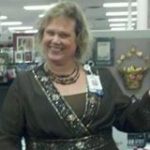 Christine Holecek is an Education Specialist at Education Service Center Region 12 in Waco. She has worked in the area of Adult Education and Career & Technical Education for the past 25 years. She earned an AAS degree from MCC, a BAAS and Master’s Degree from the University of North Texas and is currently enrolled in the Doctoral Program in Educational Leadership and Policy Studies at Tarleton State University.
Christine Holecek is an Education Specialist at Education Service Center Region 12 in Waco. She has worked in the area of Adult Education and Career & Technical Education for the past 25 years. She earned an AAS degree from MCC, a BAAS and Master’s Degree from the University of North Texas and is currently enrolled in the Doctoral Program in Educational Leadership and Policy Studies at Tarleton State University.
 Dr. Scott McClanahan is the Executive Director of Secondary Curriculum and Instruction for the Waco Independent School District. Originally from the Chicago suburbs, Dr. McClanahan moved to Texas to earn both his Masters degree and Doctorate. He has been a middle school and high school teacher, a community college professor, and a university adjunct professor.
Dr. Scott McClanahan is the Executive Director of Secondary Curriculum and Instruction for the Waco Independent School District. Originally from the Chicago suburbs, Dr. McClanahan moved to Texas to earn both his Masters degree and Doctorate. He has been a middle school and high school teacher, a community college professor, and a university adjunct professor.
The Act Locally Waco blog publishes posts with a connection to these aspirations for Waco. If you are interested in writing for the Act Locally Waco Blog, please email [email protected] for more information.
(Welcome to the Act Locally Waco/Towny blog series. Towny is an app that exists to connect consumers with local businesses. It’s fairly new to Waco and is loaded with answers to the question, “Why local?” Through this blog series, the folks at Towny will be sharing the stories behind some of our high-quality, local products and helping you get to know some of our energetic local entrepreneurs. We hope you enjoy it! Supporting local business is a terrific way to support the Waco economy! Plus, it’s just fun to get to know your neighbors. For more posts in this blog series, click here: Towny Waco.– ALW)
By Beth Whittington
 Surrounded by neat rows of weed eaters for sale, sticky notes, the hard rock music turned down lower than usual so we could hear each other talk, we sat down with John Fleming and Carla Winder to get knee-deep in the business of fixing mowers.
Surrounded by neat rows of weed eaters for sale, sticky notes, the hard rock music turned down lower than usual so we could hear each other talk, we sat down with John Fleming and Carla Winder to get knee-deep in the business of fixing mowers.
Central Texas Mowers is not a lawn mowing service. They specialize in small engine repair and hand-held equipment like blowers and weed eaters, generators, water pumps, commercial equipment like shaker plates and rollers… a variety of things. If a human put it together, they can probably fix it.
Folks drive in from up to three hours away to have this team look at their lawnmowers. It’s common for a customer to think it’s going to cost a whole lot more than it does and to be pleasantly surprised when they see the repair ticket. Every repair comes with a complimentary wash, to which many respond, “I didn’t know my machine could look like that again!”
The Central Texas Mowers team can do a world of good for your mowers and lawn equipment: engine swaps, tune-ups, repairs, you name it. Let’s get to know them better…
Beth: How did Central Texas Mowers start?
John: I was working at Landscape Supply as their head technician. I grew up doing this stuff anyway, with my dad.
I was getting my own shop ready to open and I got hurt. Got on workers’ compensation. They cut my benefits off, but I wasn’t released from the doctor to go to work so, I went for about a year without income. I was fixing to start losing stuff, selling things, and I thought, “Well, I gotta do something!” I borrowed some money from my wife, got the first few jobs, and went from there.
Beth: What was it like working with your dad?
John: I’m not going to say it was all roses! Growing up, he worked for Montgomery Ward. He was the head technician over there and he had a shop sitting over here (he points) on this little slab, forever, for 40 something years. So, he did appliances and we did lawn equipment. We were his kids, so we did what he said to do! And I hate working on appliances to this day! (Gives a hearty laugh.) I grew up on this property, graduated from La Vega.
Beth: It’s a family business. Why do you work here, Carla?
Carla: I love it. I like that I just deal with people, one-on-one.
John: We’ve known each other (he pauses to count the years and concludes) …forever, pretty much. I dated her sister, Shannon, back in high school. And when we split up, my brother, Nathan, became friends with Shannon’s brothers, Arty and Lonnie. So, we were always around each other…it was always meant to be. I feel that.
Beth: Where’d you work out of in the beginning?
John: We used this office we’re sitting in, but it was a paint booth. I worked on cars before, on the side, because – I love cars. I’m a car guy. I’d paint, do bodywork. Anything I could do to a car. I love cars.
(He laughs.)
It was hot and sweaty, trying to do paperwork. I’m not even gonna lie; it was miserable. We just built this out into an office and got A/C this year. I still don’t take a paycheck here. Everything goes right back into this place.
Beth: What do you love about cars?
 John: I love being able to put my hands on ’em, tweak ’em, listen to them. I love the way they sound, especially if it’s running right. It’s like lawnmowers – it’s got a certain sound you just have to listen for it. I don’t know; I’m weird. Engines are like people; they’ve all got their own attitude. They really do. They start by being cold to being hot. You’ve just gotta know your equipment. To me, they’ve just all got their own personality in the way they run – you can hear it.
John: I love being able to put my hands on ’em, tweak ’em, listen to them. I love the way they sound, especially if it’s running right. It’s like lawnmowers – it’s got a certain sound you just have to listen for it. I don’t know; I’m weird. Engines are like people; they’ve all got their own attitude. They really do. They start by being cold to being hot. You’ve just gotta know your equipment. To me, they’ve just all got their own personality in the way they run – you can hear it.
(He’s an engine whisperer.)
Beth: Any memorable jobs that you’ve done?
Carla: (She jokes) …You mean, like when a mower’s so old it doesn’t have a serial number so we’ve got to hunt down the parts to fix it? But, we do. We go the distance for them. We have some very thankful customers.
John: That one man carried his mower to four different shops! They kept messing it up. Finally, he brought it to us and we haven’t seen him since!
Beth: What’d you do to it?
John: I can’t even remember. I remember him, but I don’t remember his mower. People come in and ask, “Is my mower ready?” They both laugh, “Which one’s yours?”
Beth: What’s something special about this place that most folks don’t know?
(Long pause.)
Carla: That’s a hard question because people already know he’s good at what he does. Many of them say that. People just come here to ask John’s opinion… (she laughs) Because they know he’s going to tell them the truth.
John: I’m forthcoming. Some like that and some. do. not.
(I asked for an example; he obliged…)
If I think your equipment is a piece of junk or you’re asking me about a mower across town, I’ll let you know. I try to be subtle about it but – you know, that’s why a lot of customers like coming here, because I tell it like it is.
Beth: Imagine what Waco would be like if everyone bought locally?
John: (His eyes lit up.) Oh, it would THRIVE! It would be amazing. For everyone, for Waco.
 If your lawn equipment has been having ish-ues, let Central Texas Mowers bring that thing back to life for you. In the meantime, download the Towny app to continue to support businesses like John’s. Don’t miss everrrrything Waco has to offer you, locally!
If your lawn equipment has been having ish-ues, let Central Texas Mowers bring that thing back to life for you. In the meantime, download the Towny app to continue to support businesses like John’s. Don’t miss everrrrything Waco has to offer you, locally!
 Beth Whittington remembers sitting on the Waco suspension bridge as a girl, visiting family friends. Legs dangling off, watching the Fourth of July fireworks spark the sky. Been a Waco local for the better part of 19 years. Gaps explainable by the awkwardly untrue term of “ex-missionary” Beth thrives on: generating ideas + copywriting. Can’t wait to: visit South Africa. Favorite part of Waco: Bangkok Royale + the HOTHTC. Wants: everyone in Waco to get Towny because it’ll make life better for us all if we let it.
Beth Whittington remembers sitting on the Waco suspension bridge as a girl, visiting family friends. Legs dangling off, watching the Fourth of July fireworks spark the sky. Been a Waco local for the better part of 19 years. Gaps explainable by the awkwardly untrue term of “ex-missionary” Beth thrives on: generating ideas + copywriting. Can’t wait to: visit South Africa. Favorite part of Waco: Bangkok Royale + the HOTHTC. Wants: everyone in Waco to get Towny because it’ll make life better for us all if we let it.
Take your local support up a notch – pop in Towny + have a look around.
The Act Locally Waco blog publishes posts with a connection to these aspirations for Waco. If you are interested in writing for the Act Locally Waco Blog, please email [email protected] for more information.
